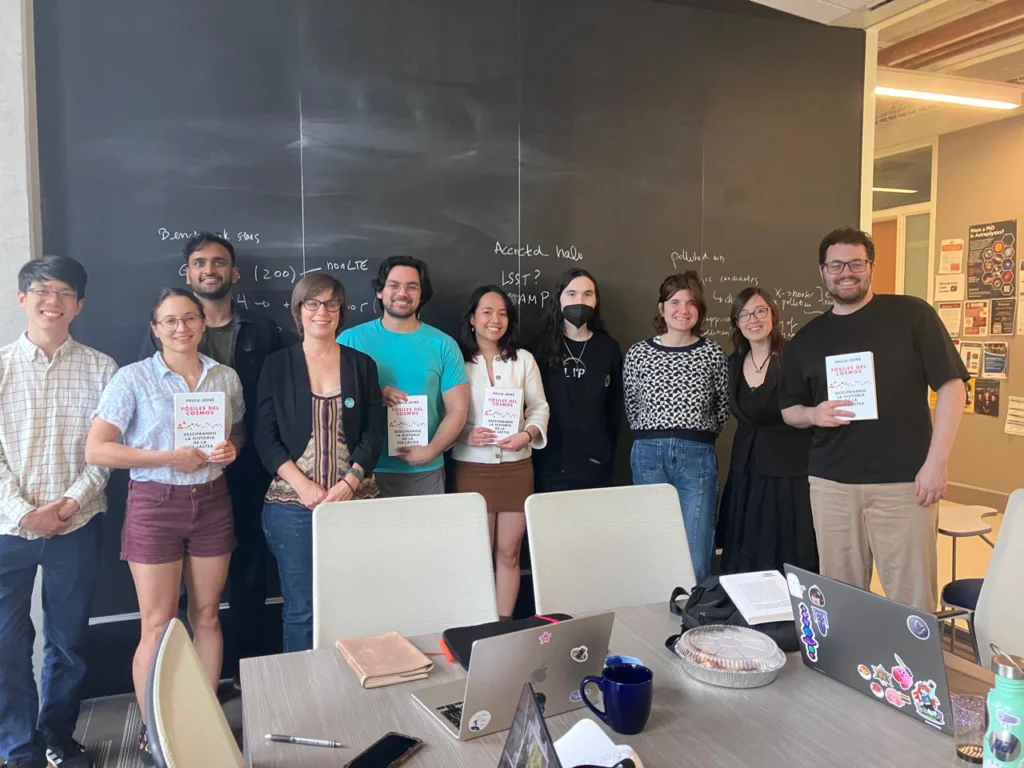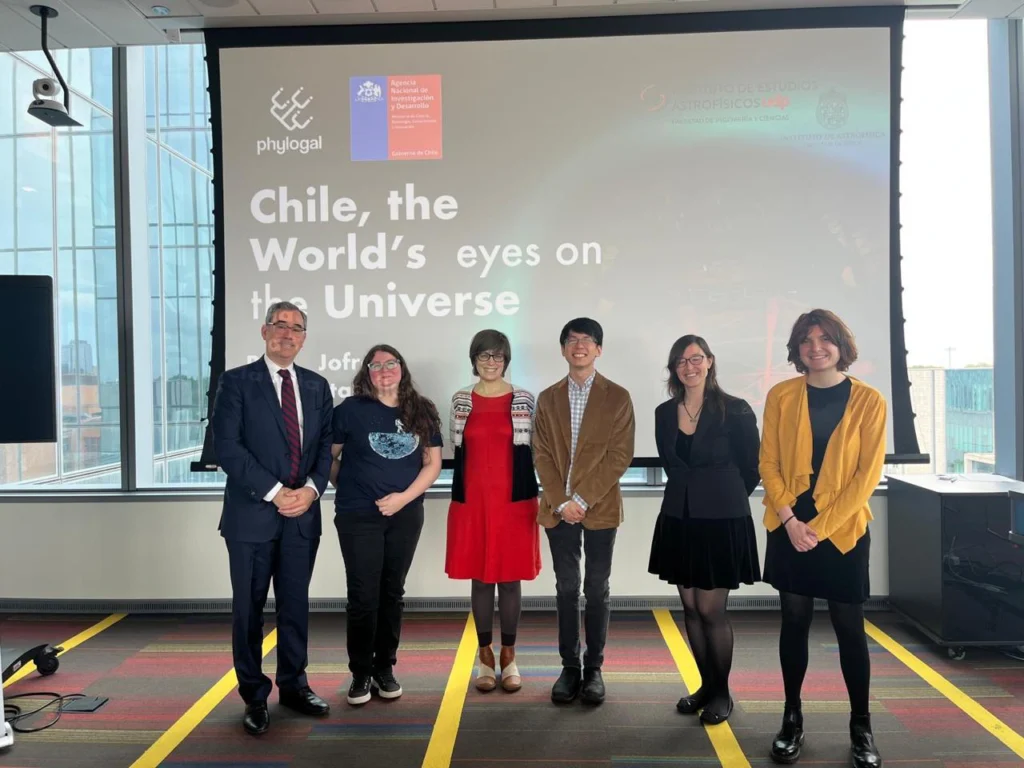- A national delegation traveled to the United States to strengthen academic ties, share experiences, and explore new opportunities for scientific collaboration. The initiative was promoted by the Chilean Consulate in the city and included the participation of three prominent representatives of Chilean astronomy.
During a week of activities at the University of Chicago, the Chilean astronomers followed an agenda focused on knowledge exchange, the exploration of joint opportunities, and the strengthening of international networks. The delegation included Paula Jofré (Universidad Diego Portales), Claudia Aguilera (Pontificia Universidad Católica de Chile), and PhD candidate Sara Vitali (Universidad Diego Portales).
The visit helped strengthen ties with the team of astrophysicist Alexander Ji and opened new avenues for collaboration in strategic areas such as stellar evolution, artificial intelligence applied to astronomical data, and the training of young talent. Through meetings, lectures, and outreach activities, the Chilean scientists showcased the country's ability not only to observe the universe but also to lead in research, education, and innovation.
“We wanted to take this opportunity to show that Chile is not only a place for observation, but also a country where cutting-edge science is being done. Today, we have highly qualified human capital, privileged access to the world’s most advanced instruments, and—above all—the ability to propose ideas and lead collaborations,” said Paula Jofré.
Chile as a Platform for Frontier Science
Beyond academic exchange, the visit highlighted an emerging trend: in the face of funding and long-term challenges facing science in the United States, Chile is becoming an increasingly attractive platform for frontier research. With privileged access to world-class observatories such as LSST, Magellan, Gemini, ALMA, VLT, and the upcoming ELT—alongside the strengthening of local scientific communities—the country is positioning itself as a strategic partner, offering infrastructure, human capital, and a strong spirit of collaboration.
During the visit, concrete opportunities for joint work were discussed, including applications for international funding, shared use of data, research stays, and potential student exchange programs. The delegation also emphasized their openness to hosting international students and building networks that facilitate the sharing of capacities and resources.
A Book as a Bridge Between Worlds

One of the symbolic moments of the visit was the presentation of the book Fósiles del Cosmos, written by Paula Jofré, to the Chilean consul in Chicago. This popular science book—which brings together stories, journeys, and contributions of women astronomers from around the world—has become an unusual yet essential reference: it is one of the few astronomy publications in Spanish designed for a general audience.
Beyond its editorial value, the presentation of the book represented a gesture of scientific and cultural diplomacy. Copies were also gifted to Alexander Ji’s team, who recognized several of the astronomers featured in the publication.
“Many of the names featured in the book were familiar to our colleagues in Chicago. Seeing those journeys brought together in an accessible and visually engaging work was a moment of shared emotion and pride,” said Jofré.
This collaborative approach ensured that the trip not only delivered immediate outcomes, but also laid the groundwork for long-term scientific engagement—positioning Chile not just as the world’s observatory, but as a hub for producing relevant and transformative science.

